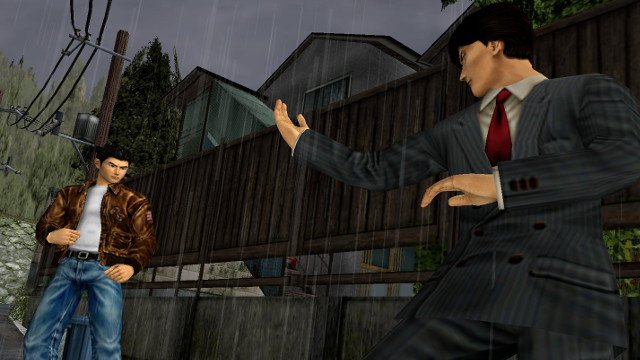The announcement of Shenmue 3 back at E3 in 2015 still remains one of the most emotionally wish-fulfilling moments in recent gaming history, which was no mean feat considering the hat-trick of fan fulfilments delivered on Sony’s stage that evening. Now to the delight of its original hardcore fans, SEGA has also announced that the original Shenmue and Shenmue 2 will finally be coming to modern platforms this year.
There is, however, an anxiety of seeing a classic game return, mainly due to the possibility that Shenmue will look like a relic alongside the kind of open-world games we expect in 2018. Unlike other genres such as a classic fighting game or 2D platformer, Shenmue’s groundbreaking features haven’t aged well. Even back then, it didn’t take long before GTA 3 and Morrowind blew the lid off what open-world games could be. Even if you ignore the big-budget studios in the West, SEGA’s own Yakuza series, with its abundance of distractions and offbeat side quests, doesn’t require much effort to show up Shenmue’s stiff one-note protagonist on a single-minded quest for revenge.
But perhaps pointing out the lack of modern features in a game that came out long before open-world game design became the norm is the wrong approach. Going back to Shenmue may also reveal something about Yu Suzuki’s quiet simplicity as intentional, and it could make for a refreshing contrast to the pernicious design decisions that pervade games today.

Just take basic features like an in-game map, fast travel, and waypoints, luxuries that don’t exist in Shenmue. At best, you can consult a real map in a fixed location. These are all conveniences we’ve taken for granted, but their absence actually makes for a more immersive experience that follows the rules of the world, including a real clock dictating the opening times of shops and bars, and without pesky notifications cluttering your screen.
The lack of icons telling you where to go is also because, well, there aren’t actually any side quests, at least not the sort that we’re used to that helps enhance a skill tree or expand the story. You can, of course, earn money when you get a job driving a forklift at the harbor later on and even participate in morning races, but these are actually mandatory parts of the job, and therefore serve the central story. Meanwhile, Shenmue 2 actually contains a couple hidden side quests, including a duck-racing mini-game, but they’re also notoriously hidden to the point that most people never even knew they existed.
Despite the extensive work that went into designing hundreds of interiors and creating NPCs with their own daily routines, you’ll find your choices laughably restricted to po-faced linear plot-driving objectives, which begins with asking a lot about men in black suits and, of course, sailors. But then this isn’t a sandbox where you have the freedom to do whatever you like – you’ve very much in the role of a high school student with grief and vengeance weighing on him. Thinking about it, if my father was killed in front of me and I was hellbent on finding the man responsible, I probably wouldn’t be interested in helping someone find a lost cat or intervening in someone’s domestic affairs either. You might say that Shenmue’s open world is about context rather than content.

Of course, there are optional activities, such as the games you can play down at the arcade. But unlike the glut of content that developers feel compelled to fill their games with nowadays, Shenmue’s mini-games are never about distracting you from the central narrative, and due to the realistic day and night cycles (which SEGA have confirmed will remain in the original game’s re-release), they’re ultimately there to help pass the time and nothing more.
I also think about the gachapon machines you spend your daily allowance on to collect toys that serve no other purpose other than pleasing the most ardent completionist. How ironic that such a simple pleasure of passing the time has since been cynically adopted by the games industry at large into the controversial business models we’ve now come to know as loot boxes.
There’s something humbly grounded about Shenmue, confident in its world that there’s a charm in simply exploring it for no other reason than your curiosity, without putting in some kind of checklist to pass off as meaningful content (on the other hand, Achievements have been confirmed for the re-release, and I can only imagine how arbitrary they may be).
However, you may find the lack of modern features makes the majority of the game pointless or tedious, and that may be valid. Ultimately, stepping back into Shenmue in 2018 will feel more like stepping into a museum, moments that may require a figurative older gamer reminding you, “In my day, we didn’t have fast-travel and had to be home by 11 pm.” But take it on its own terms and there’s both an innocence and simplicity to the experience without all of modernity’s feature creep. Perhaps the bigger question will be whether Shenmue 3’s gameplay stays rooted in the past or looks to the present.










